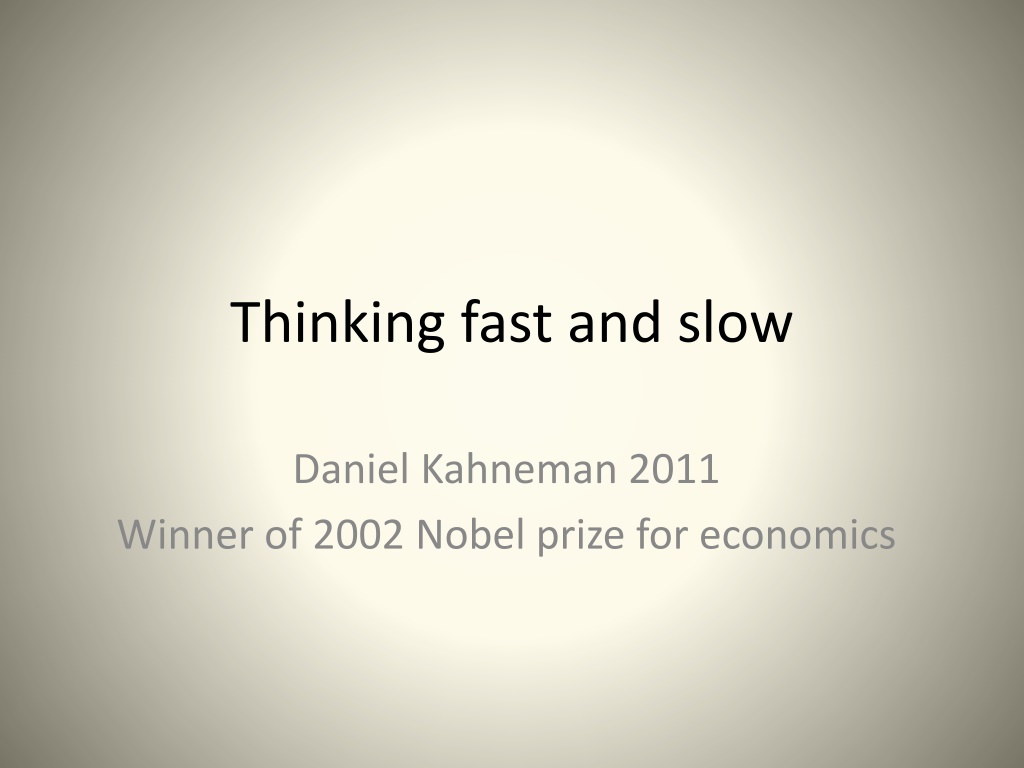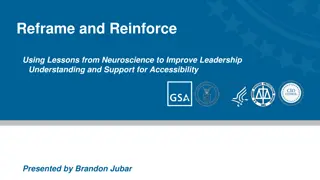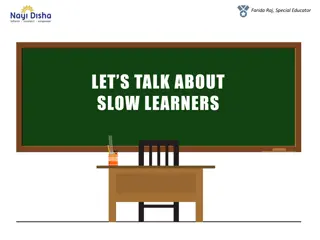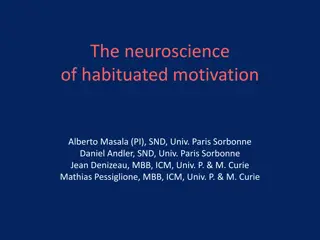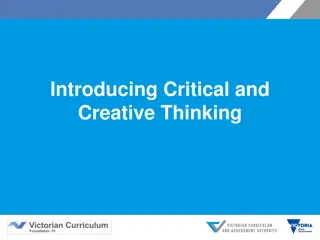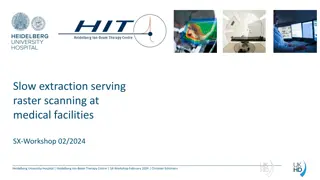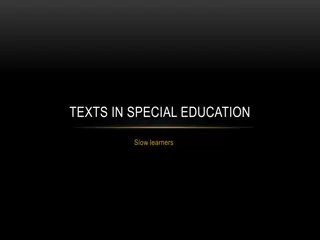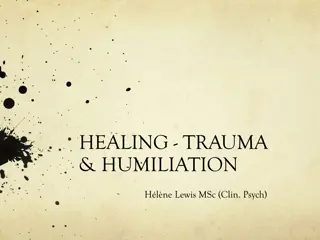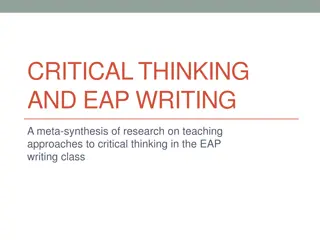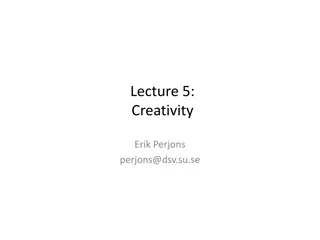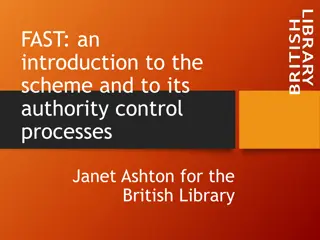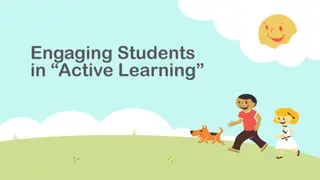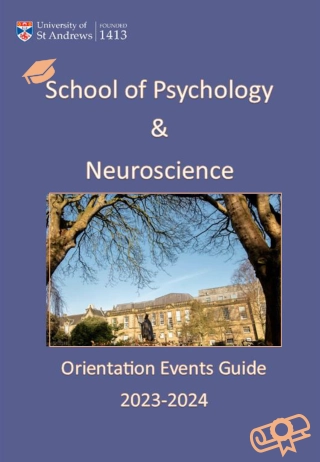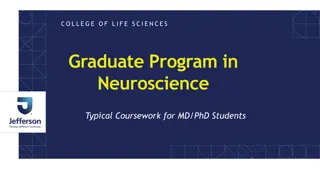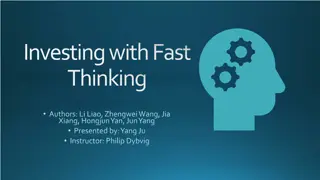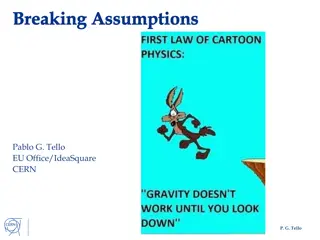Insights from "Thinking, Fast and Slow" and Neuroscience Advances
Explore the shift in understanding human rationality from the mid-20th century to the present through works like "Thinking, Fast and Slow" by Daniel Kahneman. Delve into the impact of strong emotions on decision-making, the role of unconscious thinking in decision processes as discussed in "Strangers to Ourselves" by Timothy Wilson, and the illusion of control portrayed in cases of organic amnesia. Witness how advancements in neuroscience technologies, such as fMRI scanning, have revolutionized our understanding of unconscious behaviors and decision-making processes.
Download Presentation

Please find below an Image/Link to download the presentation.
The content on the website is provided AS IS for your information and personal use only. It may not be sold, licensed, or shared on other websites without obtaining consent from the author. Download presentation by click this link. If you encounter any issues during the download, it is possible that the publisher has removed the file from their server.
E N D
Presentation Transcript
Thinking fast and slow Daniel Kahneman 2011 Winner of 2002 Nobel prize for economics
Old view of rationality In the mid 20thcentury people were thought to be generally rational
Old view of rationality In the mid 20thcentury people were thought to be generally rational Strong emotions interfere with rationality
Old view of rationality In the mid 20thcentury people were thought to be generally rational Strong emotions cause interfere with rationality Ayn Rand Everything can be decided by logic and reason
21stCentury Neuroscience Technology advances changed everything: FMRI scanning
21stCentury Neuroscience Technology advances: FMRI scanning new ways of measuring unconscious behaviour
21stCentury Neuroscience Technology advances: FMRI scanning new ways of measuring unconscious behavior reversed 20thcentury view
Strangers to ourselves Timothy Wilson Unconscious does most of our thinking and decision-making
Strangers to ourselves Timothy Wilson Unconscious does most of our thinking and decision-making Unconscious: mental processes that are inaccessible to consciousness but that influence judgment, feelings or behavior.
The illusion of control MrThompson (Oliver Sacks): Korsakoff s syndrome: organic amnesia
The illusion of control MrThompson (Oliver Sacks): organic amnesia Not a problem! Invents new reality for every new incident nothing is the matter!
The illusion of control MrThompson (Oliver Sacks): organic amnesia Not a problem! Invents new reality for every new incident nothing is the matter! Post hypnotic suggestion
The illusion of control We have at least two personalities Personality assessments: conscious unconscious
The illusion of control We have at least two personalities Personality assessments: conscious unconscious Split brain patients confabulation
System1 thinking Instantaneous, generated unconsciously.
System1 thinking Instantaneous. Generated unconsciously: experiences genetics practice
System1 thinking Instantaneous. Generated unconsciously: experiences genetics practice defended or acted upon by System 2 conscious brain (prefrontal cortex)
System 2 Consciousness is the press secretary not the President
Attention & Effort System 2(consciousness) is the supporting actor who thinks he s the hero
Attention & Effort System 2(consciousness) is the supporting actor who thinks he s the hero Its operations are effortful and it is lazy
System 2: slow thinking Deliberate Hard work Orderly Needs to be activated
System 2 slow thinking is very important Monitors the appropriateness of your behavior in a social situation
System 2 slow thinking Monitors the appropriateness of your behavior in a social situation Thinks ahead to long term consequences eg of not exercising, over-eating etc
System 2 slow thinking Monitor the appropriateness of your behavior in a social situation Thinks ahead to long term consequences eg of not exercising, over-eating etc Check the validity of a complex logical argument
System 1 System 2 Both active when awake Automatically generates suggestions Intuitions Impulses
System 1 System 2 Both active when awake Automatically generates suggestions Intuitions Impulses Usually accepts suggestions Belief
System 1 System 2 Both active when awake Automatically generates suggestions Intuitions Impulses Usually accepts suggestions Belief Voluntary actions
Slow thinking = hard work Self control Cognitive effort Consumes glucose
Slow thinking = hard work Self control Cognitive effort Consumes glucose Ego depletion (we become more suggestible)
Oscar Pistorius February 15th news of shooting, System One reacts a woman has been killed by a man domestic violence
Oscar Pistorius February 15th news of shooting, System One reacts a woman has been killed by a man domestic violence stories and rumors begin to circulate
Feeding the Associative machine Oscar is trigger happy Tasha s
Feeding the Associative machine Oscar is trigger happy Tasha s Jealous of rugby playing boyfriend
Feeding the Associative machine Oscar is trigger happy Tasha s Jealous of rugby playing boyfriend Screams of fight overheard
Feeding the Associative machine Oscar is trigger happy Tasha s Jealous of rugby playing boyfriend Screams of fight overheard Prosecuted for murder
The Associative Machine Spreading cascade of activity in the brain activating memories and emotions:
The Associative Machine Spreading cascade of activity in the brain activating memories and emotions: Likes Coherency Each element is connected Each supports and strengthens the others Self reinforcing cognitive, emotional and physical pattern
Priming and associations Everything that happens around you effects the state of your memory
Priming Everything that happens around you effects the state of your memory depending what you have just heard and seen you are ready to recognise and respond to associated objects and concepts
Priming Everything that happens around you effects the state of your memory depending what you have just heard and seen you are ready to recognize and respond to associated objects and concepts SO _P
Cognitive Ease Repeated experience Ease
Cognitive Ease Repeated experience Feels familiar Ease
Cognitive Ease Repeated experience Feels familiar Clear display Ease
Cognitive Ease Repeated experience Feels familiar Clear display Feels effortless Ease
Cognitive Ease Repeated experience Feels familiar Clear display Feels effortless Ease Primed idea
Cognitive Ease Repeated experience Feels familiar Clear display Feels effortless Ease Primed idea Feels good
Cognitive Ease Repeated experience Feels familiar Clear display Feels effortless Ease Primed idea Feels good Good mood (with friends Around braai)
Cognitive Ease Repeated experience Feels familiar Clear display Feels effortless Ease Primed idea Feels good Good mood (with friends Around braai) Feels true
Anything that makes associations easier will bias beliefs Repetition makes people believe falsehood Familiarity is hard to distinguish from the truth
Minds made up As trial begins: My dentist My painting friend
